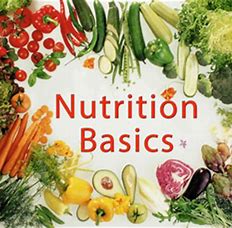In the whirlwind of daily life, maintaining a balanced diet can often take a back seat. However, the food we consume plays a crucial role not just in our physical health, but also in our mental and emotional well-being. Today, let’s explore some practical and effective nutritional tips that can boost your overall health.
 Understanding the Basics of Nutrition
Understanding the Basics of Nutrition
Nutrition is about more than just calories. It’s about the balance of nutrients – proteins, carbohydrates, fats, vitamins, and minerals – that fuel your body. Here’s a simple breakdown:
- Proteins: Essential for building and repairing tissues.
- Carbohydrates: Your body’s main energy source.
- Fats: Necessary for energy and supporting cell growth.
- Vitamins and Minerals: Vital for various bodily functions.
Tips for Nutritional Wellness
- Balanced Diet: Aim for a diet that includes a variety of foods. Incorporate a mix of fruits, vegetables, whole grains, lean proteins, and healthy fats into your meals.
- Stay Hydrated: Water is crucial for every cell in your body. Aim to drink at least 8 glasses of water a day. If you’re active or live in a hot climate, you might need more.
- Mindful Eating: Pay attention to what you eat and savor each bite. Avoid distractions like eating in front of the TV or computer.
- Portion Control: Listen to your body’s hunger cues. Eating slowly and using smaller plates can help control portion sizes.
- Limit Processed Foods: Processed foods often contain unhealthy fats, sugars, and sodium. Try to limit their consumption and opt for whole, unprocessed foods.
- Include Fiber-Rich Foods: Foods high in fiber, such as fruits, vegetables, and whole grains, keep you full longer and are essential for digestive health.
- Healthy Snacking: Choose snacks that contribute to your daily nutrient intake, like nuts, yogurt, or fruit, rather than empty-calorie options.
- Limit Sugar and Salt: Reducing the intake of added sugars and salt can have a significant impact on your health. Look out for hidden sugars and salt in packaged foods.
- Meal Planning: Planning your meals can help you make healthier choices and avoid impulsive decisions.
- Stay Active: A healthy diet paired with regular physical activity can enhance your health and well-being.
Conclusion
Remember, eating for wellness is not about strict dietary limitations or depriving yourself of the foods you love. It’s about feeling great, having more energy, improving your health, and boosting your mood. Small changes in your diet can make a big difference in your health over time.
As you embark on your journey to wellness, keep in mind that every individual is different, and what works for one person may not work for another. It’s always a good idea to consult with a healthcare professional or a dietitian before making significant changes to your diet.
Happy eating, and here’s to your health!

